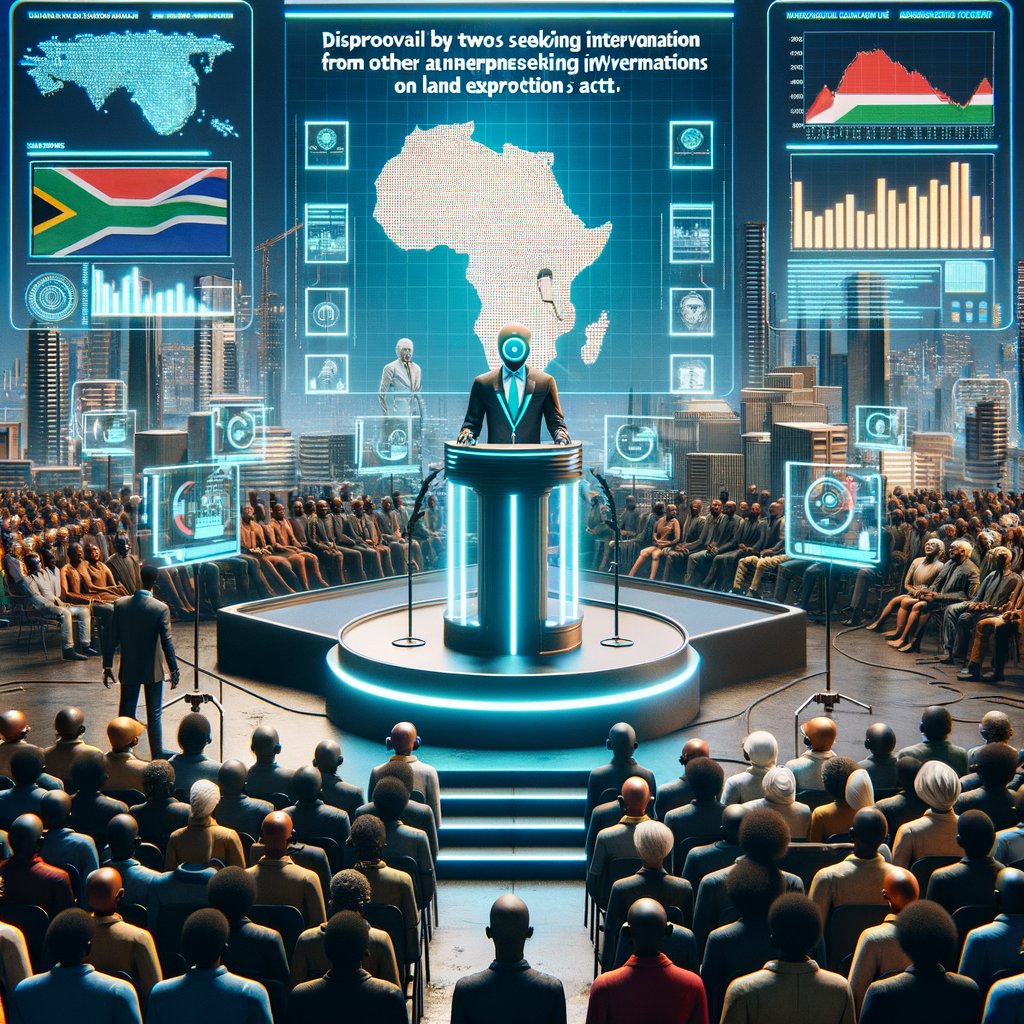Image created by AI
President Ramaphosa Criticizes AfriForum and Solidarity’s US Involvement, Emphasizes National Unity
During a recent public address, President Cyril Ramaphosa voiced his firm disapproval of AfriForum and the Solidarity Movement's decision to seek intervention from the United States regarding South Africa's controversial Expropriation Act. This act, which allows for the expropriation of land without compensation, has been a contentious issue within the country.
The two groups, which represent minority interests, particularly within the Afrikaner community, have been actively meeting with US government officials. Their aim is to garner international support against what they believe could lead to adverse economic repercussions, including significant job losses.
However, President Ramaphosa sees these actions as counterproductive and potentially harmful to the nation's unity and international sovereignty. Emphasizing the importance of domestic resolution of conflicts, he stated, “It confirms our standing as a free and independent nation, a nation that can stand proud amongst many other nations and being able to say: ‘We can solve our own problems. We may differ here but we will find solutions to whatever problems we have.’”
In light of these events, the Economic Freedom Fighters (EFF), another influential political party in South Africa, has taken a more aggressive stance. They have called for AfriForum and Solidarity to be designated as domestic terrorist organisations for undermining the state and spreading misinformation internationally.
Responding to these allegations, President Ramaphosa dismissed the notion of external interference and reiterated his belief in dialogue and unity to address the nation's challenges. He underscored the need for South Africans to engage with one another constructively, rather than seeking solutions from foreign entities.
The president's remarks have sparked a broader debate on national sovereignty and the appropriate avenues for addressing civil and political grievances in South Africa. As the situation continues to develop, the eyes of the nation—and potentially those of international observers—remain fixed on how South Africa will navigate these internal conflicts and the discourse around land expropriation.










